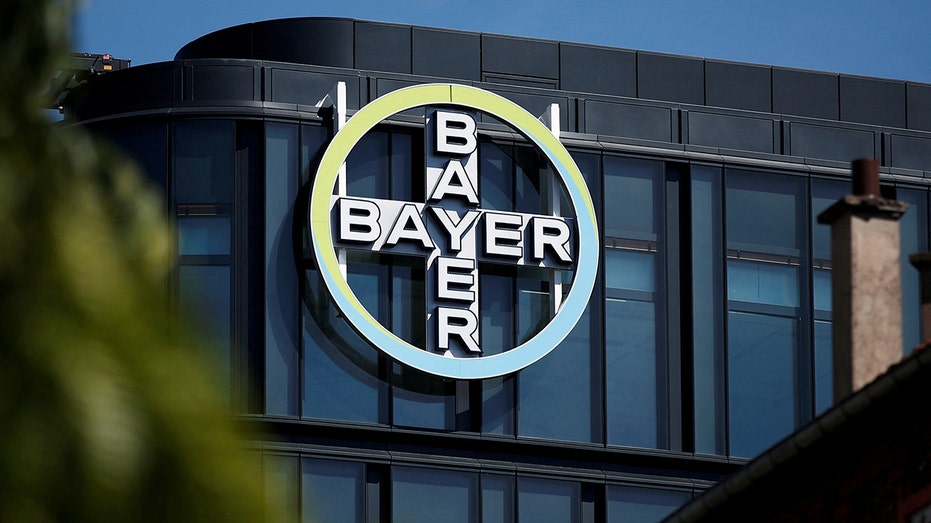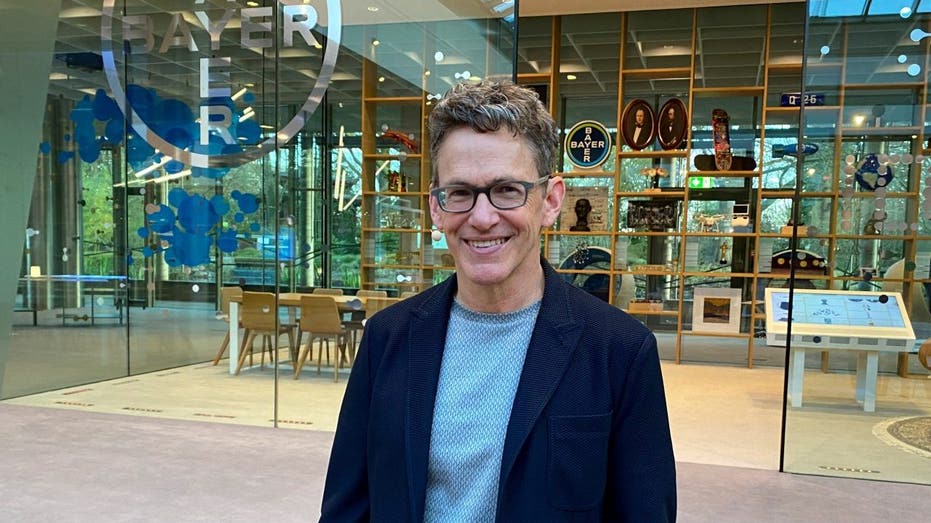Bayer’s new American CEO treads softly as he takes on wounded pharma giant
Bill Anderson aims to drive innovation and cultural change and lauds ‘compelling logic’ of Monsanto acquisition
Bill Anderson, the American picked to head Bayer AG, treads softly as he begins a monthslong transition into his role as chief executive officer of the German owner of Monsanto, saying he will take his time before trying to fix the company’s most pressing problems.
Mr. Anderson, a sprite, athletic 56-year-old hailing from the Gulf coast of Texas, this week joined the management board of Bayer, the 160-year-old chemical and pharmaceutical company known for inventing aspirin more than a century ago. He starts as CEO in June.
His predecessor, Werner Baumann, departs the company as it is embroiled in a web of litigation following an expensive and fraught acquisition of Monsanto that has left Bayer facing unquantifiable liabilities and saddled with debt. These have weighed on its share price and irked investors who began pushing last year for Mr. Baumann to clear the stage.

The Bayer AG logo sits on display at the headquarters in La Garenne-Colombes, near Paris, France, May 13, 2019. REUTERS/Benoit Tessier/File Photo (REUTERS/Benoit Tessier/File Photo / Reuters Photos)
After arriving in Bayer’s provincial headquarters on Saturday, Mr. Anderson said he immediately sat down with Mr. Baumann—who will help his successor transition into his new role—and held the first of what will be months of meetings with company executives to get to know Bayer and its people.
BAYER PLANS TO SHIFT FOCUS AWAY FROM WOMEN’S HEALTH DRUG RESEARCH
Speaking to journalists at an informal gathering in Leverkusen, Germany, late Tuesday, Mr. Anderson said he needed time to get to know the company before offering any remedies for Bayer’s woes.
"For the next 60 days I’ll be roaming the earth, getting to know Bayer," he said.
Pressed by the reporters on his first plan to put the aftershocks from the Monsanto takeover to rest, Mr. Anderson said the deal itself appeared to be a good strategic fit for Bayer.

Bill Anderson, who will take over as CEO of German drugmaker Bayer on June 1, 2023 poses for a picture before a meeting with journalists in Leverkusen, Germany, April 4, 2023. REUTERS/Tom Kaeckenhoff
"The idea of combining the world’s leading business in seeds with the world’s leading business in crop science is very compelling," he said. "We take the litigation very seriously. But obviously on day two I don’t have the answers."
Bayer, the biggest U.S. crop-seed seller, has been working to resolve tens of thousands of unsettled lawsuits alleging that Roundup, the world’s most widely used herbicide, caused cancer in homeowners, landscapers and farmers. It has set aside about $16 billion for settlements, Bayer has said.
JOHNSON & JOHNSON TO PAY $8.9B TO RESOLVE CLAIMS BABY POWDER, TALC PRODUCTS CAUSED CANCER
Monsanto developed Roundup as well as genetically engineered crops designed to withstand the herbicide. Bayer lost the first trial over Roundup’s alleged cancer risk in August 2018. It has more recently won six consecutive trial victories.
Bayer maintains that Roundup is safe to use and is still popular with commercial farmers who have largely been undeterred by the litigation.
Mr. Anderson gave some hints of where his priorities will be, suggesting he was unlikely to focus on such blockbuster deals such as the Monsanto acquisition, saying: "That’s not my space."
Instead, Mr. Anderson spoke mostly about the kind of transformation projects he led at past companies such as Roche Holding AG, his most recent job where he was CEO of its pharmaceutical division and prior to that, CEO of Genentech Inc.

Bayer's Roundup is shown for sale in Encinitas, California, U.S., June 26, 2017. (REUTERS/Mike Blake/File Photo) ((REUTERS/Mike Blake/File Photo) / Reuters Photos)
At Roche, he said, he was able to shift $3 billion into research and development, which helped finance breakthroughs in medicines, one of the main reasons why Bayer’s board reached out to him to succeed Mr. Baumann.
"It’s easy to spend money on R&D. It’s another to channel that into breakthroughs," Mr. Anderson said.
Some investors have complained that Bayer’s diverse businesses have little in common and have pushed for breaking up the company. Mr. Anderson didn’t elaborate but said there were equally strong voices arguing to keep the company intact.
CLICK HERE TO GET THE FOX BUSINESS APP
"Some of the most successful businesses have diverse products," he said. "I’m going to consider everything, but I come here in part because these are three very good businesses."
Before arriving in Leverkusen, Mr. Anderson spent months engaging with the company’s board of directors. In choosing him, the board cited his track record for developing innovative breakthrough products at Roche.
It isn’t clear how Mr. Anderson wants to rev up Bayer’s innovation engines, but he said that during the past few months of discussions, the board hadn’t drawn any red lines to hem him in.
"They have given me tremendous latitude to deliver on the vision," he said.




















